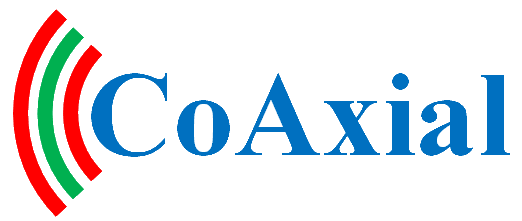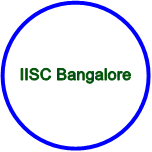Test Amit sep
ERCIM Alain Bensoussan Fellowship Program: European Commission (EU)
ERCIM Alain Bensoussan Fellowship Program is established by the FP7 Marie Curie Actions – People and Co-funding of Regional, National, and International Programs (COFUND) under the European Commission (EU).
Number of Fellowships: More than 150 fellowships/Scholarships have been granted under the Program.
The Marie Curie co-funding action aims to enhance transnational mobility for the training and career development of experienced researchers, students, and professionals.
Eligibility Conditions
- The Fellowships are available for PhD holders.
- Candidates from all over the world can apply for these scholarships.
- Candidates should have obtained a Ph.D. degree during the last 8 years (before the application deadline) or be in the last year of the thesis work with an outstanding academic record.
- Should be fluent in English.
- Should be discharged or get a deferment from military service.
- the fellowship is restricted to two terms (one reselection possible)
- have completed the Ph.D. before starting the grant (proof will be requested before your arrival).
- Scientists working in the industry are also encouraged to apply.
Duration: 12
Topics/disciplines
The topics converge on the ERCIM institutes' scientific disciplines of competence. The following disciplines are of focus:
Computer Applications
- Administrative Data Processing
- Arts & Humanities
- Computers in Other Systems
- Computer-Aided Engineering
- Life & Medical Science
- Physical Sciences & Engineering
- Social & Behavioral Science
Computing Methodologies
- Artificial Intelligence
- Computer Graphics
- Document & Text Processing
- Image Processing & Computer Vision
- Pattern Recognition
- Simulation & Modeling
- Symbolic & Algebraic Manipulation
Computer Systems Organization
- Computer Communication Networks
- Computer System Implementation
- Performance of Systems
- Processor Architectures
- Special-Purpose & Application-Based Systems
Computing Milieux
- Computer Industry
- Computers & Society
- Computers & Education
- Legal Aspects of Computing
- History of Computing
- Management of Computing & Information Systems
- Personal Computing
- Computing Profession
Data
- Coding & Information Theory
- Data Encryption
- Data Storage Representations
- Data Structures
- Files
Hardware
- Arithmetic & Logic Structures
- Control Structures & Microprogramming
- Input/Output & Data Communications
- Logic Design
- Integrated Circuit
- Memory Structures
- Performance & Reliability
- Register-Transfer-Level Implementation
Information Systems
- Database Management
- Information Interfaces & Presentation
- Information Systems Applications
- Information Storage & Retrieval
- Models & Principals
Mathematics
- Abstract harmonic analysis
- Algebra
- Algebraic topology
- Approximations & expansions
- Biology & other natural sciences
- Calculus of variations & optimal control; optimization
- Combinatorics
- Convex & discrete geometry
- Difference & functional equations
- Differential geometry
- Dynamical Systems & ergodic theory
- Fourier analysis
- Functional analysis
- Functions of a complex variable
- Game theory, economics, social & behavioral sciences
- General
- General algebraic systems
- General topology
- Geometry
- Global analysis, analysis on manifolds
- History & biography
- Information & communication, circuits
- Integral equations
- Integral transforms, operational calculus
- Manifolds & cell complexes
- Mathematical Physics
- Mathematical Logic & Foundations
- Mathematics education
- Measure & Integration
- Number theory
- Numerical analysis
- Operations research, mathematical programming
- Operator theory
- Order, lattices, ordered algebraic structures
- Ordinary differential equations
- Partial differential equations
- Potential theory
- Probability theory & stochastic processes
- Real functions
- Sequences, series, summability
- Several complex variables & analytic spaces
- Special functions
- Statistics
- Systems theory; control
Mathematics of Computing
- Discrete Mathematics
- Mathematical Software
- Numerical Analysis
- Probability & Statistics
Software
- Operating Systems
- Programming Languages
- Programming Techniques
- Software Engineering
Theory of Computation
- Analysis of Algorithms & Problem Complexity
- Computation by Abstract Devices
- Logics & Meaning of Programs
- Mathematical Logic & Formal Languages
Other topics
In addition, the institutes also focus in areas such as:
- Mobile Communication
- Adaptive Robotics
- Behavior extraction from human-generated data
- Big Data
- Cloud Computing, Grids, P2P & Services
- Communication System Design
- Complex Network Analysis
- Computational Biology & Bioinformatics
- Computing & Statistics
- Constraints
- Cooperating Objects
- Data & Information Spaces (DIS)
- Dependable Software-Intensive Embedded Systems
- Design of Service-Oriented Architectures
- E-Mobility
- eGovernment (electronic Government & Applications)
- Environmental Modelling
- Flexible & adaptive hardware
- Formal Methods for Industrial Critical Systems
- Green ICT (or energy-efficient computing & communication)
- IM2IM - IT & Mathematics Applied to Interventional Medicine
- Image & Video Understanding (MUSCLE)
- Interactive Information Access
- Internet of things
- Large-scale Data Analytics
- Linked Open Data
- Machine Learning
- Media Technology & Edutainment
- Middleware for Wireless Sensor Networks
- Mobile & online social networks
- Models & Logics for Quantitative Analysis
- Multimedia Pattern Recognition
- Networks for developing countries.
- Next-generation network infrastructures
- Next-generation network infrastructures
- Pervasive computing & communications
- Process Intelligence in Business Informatics
- Satellite Communication
- Security & Trust Management
- Self-organizing networks
- Sensor Web
- Signal Processing
- Social Data Mining
- Social Network Analysis
- Social Network Analysis
- Software Engineering for Resilient Systems
- Software Evolution
- Ubiquitous Internet
- User access to scientific data
- User media interaction
- User-centered media design
- Visual Analytics
- Visual computing
- Wireless networks
Host Institution
Only ERCIM members can host selected fellows. When an ERCIM Member is a funding organization, the hosting institute might be any of its affiliates. Fellowships are proposed according to the needs of the member institutes and the available funding.
Mobility regulations:
1. A hosting member institute will not be qualified to host a candidate of the same nationality.
2. A applicant cannot be hosted by a member institute, if by the start of the fellowship, he or she has already been working for this institute (Ph.D. or postdoc) for a total of 6 months or more, during the last three years.
Deadline: Next Application deadline is 30 Sep 2023
Quick Overview
| Type: | Postdoctoral , Scientist , Research Associate |
| Organization: | European Commission (EU) |
| Location: | India |
| Fellowship Amount: | As per EU Regulations |
| Eligibility: | PhD |
| Other Info: | Visit Website |

/European Commission (EU).png)
.png)


.png)

.png)

/ASEM-DUO Fellowship.png)
.png)
Please Sign In or Sign Up to leave a Comment.